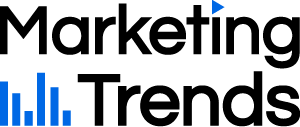Monica Moran

At Marketing Trends, we are discovering what drives Australia’s top marketers. Geospatial services company AAM gathers location data by surveying the natural and built environments to create digital maps. Monica Moran tells us about her role as Marketing Manager, raising awareness of the importance of the geospatial space through educational content, and why 'teaching is the new pitching'.
Career & professional background
Monica, how did your career in marketing start?
I consider my first “official” foray into marketing was when I had the word “marketing” in my job title. I started off as a marketing coordinator at a not-for-profit organisation that taught health education for young children - Life Education Australia, better known for their brand mascot, “Healthy Harold”.
If you hadn’t pursued a career in marketing, in which other industry do you think you might be?
I graduated with a degree in Communications, majoring in journalism. One of my fondest and earliest memories is my grandmother reading Dr. Seuss books to me, and I have always been a bookworm. So from a young age, I wanted to be a writer. Although I initially enrolled in an Arts/Commerce degree at university, I found myself much more engaged with “Arts” subjects like literature and philosophy. and came to realise I wanted my future career to be centred on writing and communications.
I switched to a degree in Communications with the intention of becoming a features writer but as I was finishing my degree, the print media was headed into a steep decline due to the rise of digital media. Suddenly, a career in the print media wasn’t looking promising so I decided that I could probably try my hand at marketing.
Somewhat naively, I thought marketing was just about communicating and promotion and that somehow I would magically learn how to be an effective marketer just by getting jobs that had “marketing” in their title. I now realise that marketing is a much larger discipline that encompasses so many different fields of learning.
I’ve definitely learned on the job, but I’ve also made a concerted effort to learn the fundamentals by reading books, listening to podcasts, taking courses, having mentors etc. I’ve come to the conclusion that marketing, at its core, is the strategy of business. I find this endlessly fascinating and am very inspired by the fact that my line of work can have a very real and positive impact on the larger business.
Could you tell us about your role as Marketing Manager at AAM?
AAM is a geospatial services company. We gather location data by surveying the natural and built (or man-made) environments from the ground, in the air and on the water. We use this data to create digital maps and models of the physical world so that our clients can plan, design, build and manage their assets and environments. We have quite a broad range of target markets, made up of professionals with science-based and technical backgrounds.
My role as marketing manager is to create a sound marketing strategy based on customer insights, then execute. With such a wide range of products and services and an equally wide range of target markets, focus and prioritising is essential - especially since our marketing team is small.
At the moment, I am making content marketing a top priority. I want to ensure that the marketing content we produce is technically sound, but also customer-centric. Marketing content and messaging cannot be aimed at just closing a sale. Of course, my main purpose is to build pipeline and generate revenue, but I think we can achieve that by putting the customer's needs first and if that truly happens, sales and revenue will occur as a welcome by-product.
Making that shift from creating marketing content that is more educational (and therefore valuable for the customer) can be challenging, as there is still a perception that seems hard to break in B2B, which is that marketing is just advertising.
Content that simply pitches does not work anymore. Customers have the ability to do their research online, and are not captive to advertisements that interrupt them. If marketing content does not help people make their own decision to buy, then customers simply won’t consume it. Teaching is the new pitching; and people want to make their own decision to buy, they don’t want to be sold to.
Marketing & Industry Trends
What type of impact has COVID- 19 had on your industry?
Like the majority of businesses, we took a big hit once restrictions were in place. Because of border restrictions and quarantine we couldn’t fly planes to do our aerial mapping work and our surveyors couldn’t work on sites. So that had a negative impact on the surveying/data capturing side.
But there was an increase in demand for the end-products of survey data, like digital maps and 3D models. People needed to monitor, inspect and manage their assets, buildings and environments without physically going on-site. Digital maps and models help people do this.
What is the most exciting trend or innovation happening in your field in terms of growth?
The use of AI and ML is a big thing. The power of computer processing allows all this spatial data to be captured and processed at much greater speeds and higher accuracy. We can meet customer demands for more frequent data and deliver faster and cheaper. But as with all technology and tools, you still need people to discern how to use it strategically.
As a marketer, what do you believe is the biggest challenge facing your industry in the future?
I think the entire surveying/geospatial industry has an image/perception problem. The science of measurement and geography plays such an instrumental role in designing, building and managing the spaces we live in, but geospatial services and data tend to get overlooked and under-acknowledged.
Without accurate and reliable geospatial data, significant infrastructure could not be built and maintained. So in terms of marketing in this geospatial space, the main challenge is raising awareness and getting better recognition of the work we do and how important it is in creating a good quality of life for everyone.
Tools, recommendations & sources of inspiration
What does a typical day look like for you? How do you structure your week?
I work four days a week because my children are still very young (5 and 2) and I want to spend time with them, particularly my toddler. In some ways, I think having four days to get work done is a blessing as it really forces me to prioritise and I’ve learnt that effectiveness is just as much about what you choose NOT to do, as it is about what you choose to do.
I would love to schedule ‘bucket’ days, where I can choose to allocate one day just on planning and strategy, for example, then another day on communicating with my team and the wider business. But as the marketing team is small and I work just 4 days a week, it makes more sense to try and segment each day for optimal productivity.
For me, this means scheduling all my “deep work” in the mornings when my brain is still fresh and I’m naturally energetic. I try to resist checking emails and responding to instant messages during this time (the operative word being ‘try’).
But I consider what happens before I even start my work day also very important. There are a few mandatory activities I like to do before I officially start working - namely exercise (usually run for an hour), meditation (15 minutes) and gratitude journaling (5 minutes). And of course I need to get my kids fed and ready for school and daycare. I generally don’t eat anything (except coffee and water) until 10am or later as I’m into intermittent fasting/time restricted eating for the health benefits.
I try to take walk breaks every hour and physically move to another location from my work station. I save the easier tasks for the afternoon when my focus is starting to wane. I tell all my colleagues that my brain is pretty useless past 3pm as a warning and to prime them to meet with me before this time if it’s important!
What brands do you take inspiration from?
I don’t follow brands as much as I follow and admire people (who then represent their brand). I love Richard Branson because he takes risks and looks like he is genuinely having a great time and enjoying life. Can’t see the point of being super successful if you are miserable and not enjoying life!
I think Sarah Blakely is amazing, as well as the founders of Canva (Melanie Perkins and Cliff Obrecht) because they have made their own fortunes.
In terms of marketing leaders, there are so many I follow and admire: Peep Laja, Seth Godin, Joanna Wiebe, Chris Walker. And Nancy Duarte does amazing work on how to weave data into effective storytelling in business (although I try to limit the term “storytelling” when talking to business leaders). I could list many more but will stop here.
Software and tools recommendations: what is the one software you can’t work without and why?
I love technology and have many apps on my iPhone and SaaS products on my PC.
But when it comes to personal work productivity, I’m very old school. I use pen and paper and try to start each day by reviewing my to do list then making a conscious effort to tackle those big priorities first. The list never gets done so making hard decisions and the necessary trade-offs is crucial and unavoidable.
On the days that I don’t set aside time for planning I find myself working very haphazardly. I react instead of responding. I tend to feel overwhelmed and busy but not productive.
What are three resources you would recommend for anyone working in your field?
- LinkedIn - Find fellow marketers or thought leaders in your field and follow them here (assuming they are active posters on the platform). You get great insights into the way people think and how they make decisions. And it feels like you get to know their personalities as well.
- Podcasts - there are so many great shows to listen to and it’s standard practice for me to listen to podcasts or audiobooks as I do my daily run. I love 'The Marketing Book Podcast' by Douglas Burdett, 'State of Demand Gen' by Refine Labs/Chris Walker, 'Ten Per Cent Happier' by Dan Harris and 'Everyone Hates Marketers' by Louis Grenier. Again I could list many more but I will refrain.
- CXL - an e-learning platform that offers marketing related courses. The courses are all taught by professionals who have had solid experience and success in their fields so you get both theory and practical knowledge from those who have actually done the work. CXL’s official differentiator from other e-learning platforms is that their courses are taught “by the top 1%” of professionals in their respective fields. I know it sounds exaggerated but I think this is pretty close to the mark. That being said, just completing a course by itself doesn’t do much. The other part is implementing what you have learned. Theories and ideas are easy and a dime a dozen. The hard part lies in the execution.
-I also have my mind set on completing Mark Ritson’s Mini MBA in marketing next year. I don’t think you should ever stop learning or being curious no matter what your chosen profession. Plus you’d probably get really bored and uninspired!


